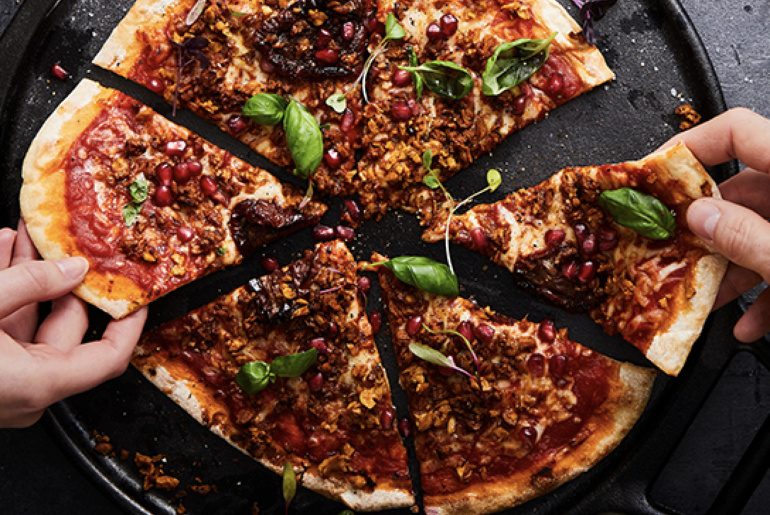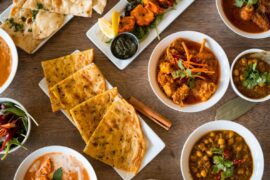Although the frozen ingredients business is generally holding up well, suppliers and buyers are coping with supply chain issues. Fallout from the coronavirus pandemic continues to contribute to global production and shipping bottlenecks, though the impact is lessening.
Then there are geopolitical issues such as the ongoing war launched by Russia in Ukraine, which has seen exports of grain and other agricultural products blocked at seaports. Cross-channel politics is also a contributing factor in Britain, with Brexit and trade disputes between the United Kingdom and EU Agriculture and Fishery sectors impacting supply lines.
Prawn Imports
Coldwater prawns are in huge demand in Britain, and the 2022 tariff quota for the popular shellfish set at 6,500 tons by the government is being exhausted more rapidly than expected. It is expected that the quota will be depleted towards the end of the summer, at which time UK importers will then have to pay a duty of 20% to secure supplies.
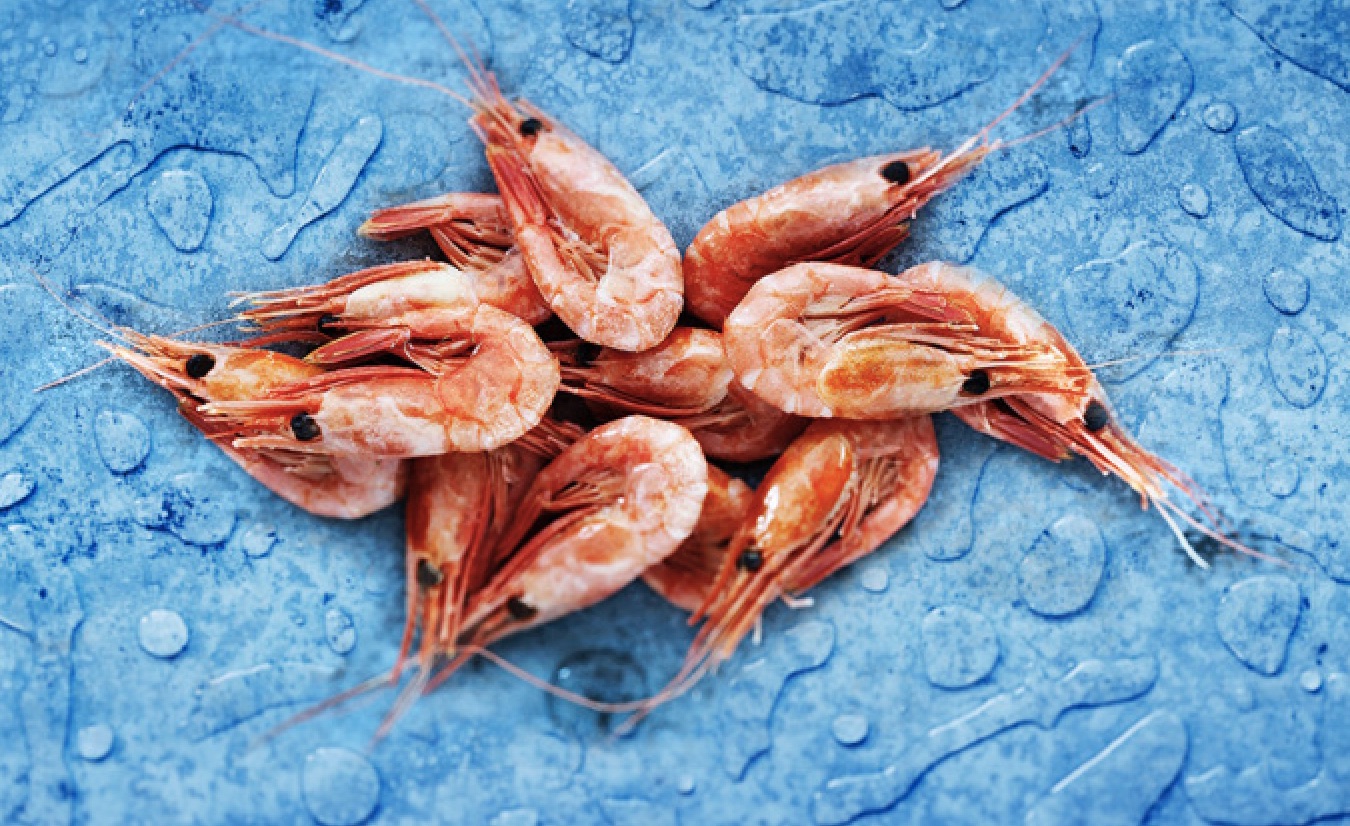
“Buyers source coldwater prawns from Greenland, Norway, Iceland and Canada,” said Ivan Bartolo, regulatory affairs advisor at Grimsby and Edinburgh-based Seafish. “Thanks to free trade agreements with the last three of these countries, prawns can be imported at a much lower rate of duty than the 20%. However, Norway, Iceland and Canada alone cannot satisfy the UK’s demand without imports from Greenland, which is a major supplier. The UK and Greenland are working towards a free trade agreement, but it is not yet in place. This means that prawns from Greenland have an import duty of 20%.”The industry has responded to the situation, with the British Frozen Food Federation (BFFF) calling on the Department for Environment Food & Rural Affairs (Defra) to increase the quota to avoid damaging UK processors and creating shortages during the Christmas-New Year high season.
Richard Harrow, former chief executive of the BFFF commented: “Without an increase in the quota, processors are going to be hit with another damaging cost increase which will have to be passed onto consumers.”
The quota was put in place to ensure a steady supply of tariff-free imported prawns at a competitive price. However, the fact that it will soon be exhausted and there is no agreement in place with Greenland, which is one of the most important suppliers, means that buyers may be forced to import prawns at the full rate of duty at 20%, which will be passed onto consumers who are already dealing with inflationary price pressure across the board.
“Increasing the 2022 coldwater prawn tariff quota will ensure that UK processors have access to sufficient raw material at a competitive price,” said Bartolo.
Plant-based Growth
Sustainability and health consciousness continue to influence the industry, with concerns driving consumers towards plant-based alternatives to meat. However, according to research carried out by Kerry, the Tralee, Ireland-headquartered multinational specialist manufacturer of food ingredients and flavors, the taste experience of these products continues to fall short. It found that while sustainability is a top driver, “consumers are unwilling to compromise on taste and seek products that are as close to the taste experience of animal products as possible.”
Commenting on the findings, Fiona Sweeney, Kerry’s strategic marketing director, said: “Ensuring great taste can be a gateway to delivering innovative and sustainable nutrition solutions for consumers around the world. However, ensuring a great taste experience – involving a full sensorial experience of sight, sound and texture – is highly complex and in plant-based foods it is inherently more challenging because the bar is set high with meat and dairy as the benchmark.”
Delivering on taste, while providing improved nutrition and seeing to it that products are sourced sustainably, will contribute to the continuing success of this category.
“If a restaurant is not getting its fair share of vegan diners, then it’s probably because their offer is too limited or uninspiring,” said Sarah-Jayne Law, sales director for key accounts at Aylesford, Kent, England-based wholesaler KFF. “I have seen and tasted some excellent flavor variations on plant-based burgers and sausages this year and it has been fabulous to have products that not only barbeque well, but also follow the trend for heat and spice thanks to the addition of ingredients such as paprika.”
Sustainable Solutions
As a subject at the forefront of consumers’ minds, sustainability has become an important factor for manufacturers when sourcing ingredients. For example, Birds Eye, a Nomad Foods brand, has signed up to the Race to Zero initiative and has successfully moved to 100% renewable electricity across all its UK factories.
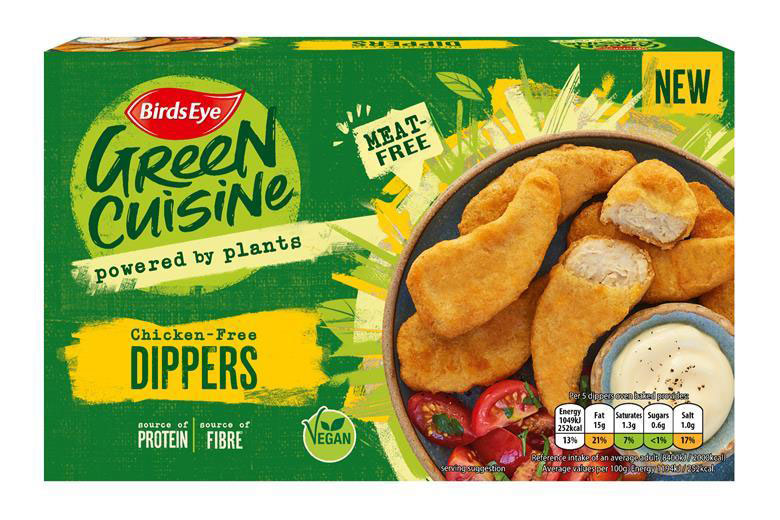 “We’re continuing to empower consumers to make more environmentally-friendly food choices with our growing plant-based range of Green Cuisine products, as well as entering meaningful and action-led partnerships, such as with the World Wildlife Fund this year, in support of sustainable sourcing and biodiversity,” said Steve Challouma, general manager at Birds Eye, in the BFFF’s Frozen Food report.
“We’re continuing to empower consumers to make more environmentally-friendly food choices with our growing plant-based range of Green Cuisine products, as well as entering meaningful and action-led partnerships, such as with the World Wildlife Fund this year, in support of sustainable sourcing and biodiversity,” said Steve Challouma, general manager at Birds Eye, in the BFFF’s Frozen Food report.
He added: “We’re currently working towards ensuring that the ingredients used in our vegetable and potato ranges are grown in accordance with sustainable farming practices. This will build upon our achievement in 2020 when our UK pea grower cooperative became the first UK farm management group, and the first globally in frozen food, to be awarded the Sustainable Agriculture Initiative Platform’s Farm Sustainability Assessment Gold level.”
There are a variety of ingredients that make up the plant-based meat alternative market, but there are big differences when it comes to these products and the nutritional benefits they provide.
Soya is a classed as a complete protein because it contains all nine essential amino acids that the human body needs. However, soya sourced from a number of countries is sometimes grown on land that contributes to the deforestation of rain forests, so caterers looking for sustainable options ought to monitor their sourcing suppliers carefully.
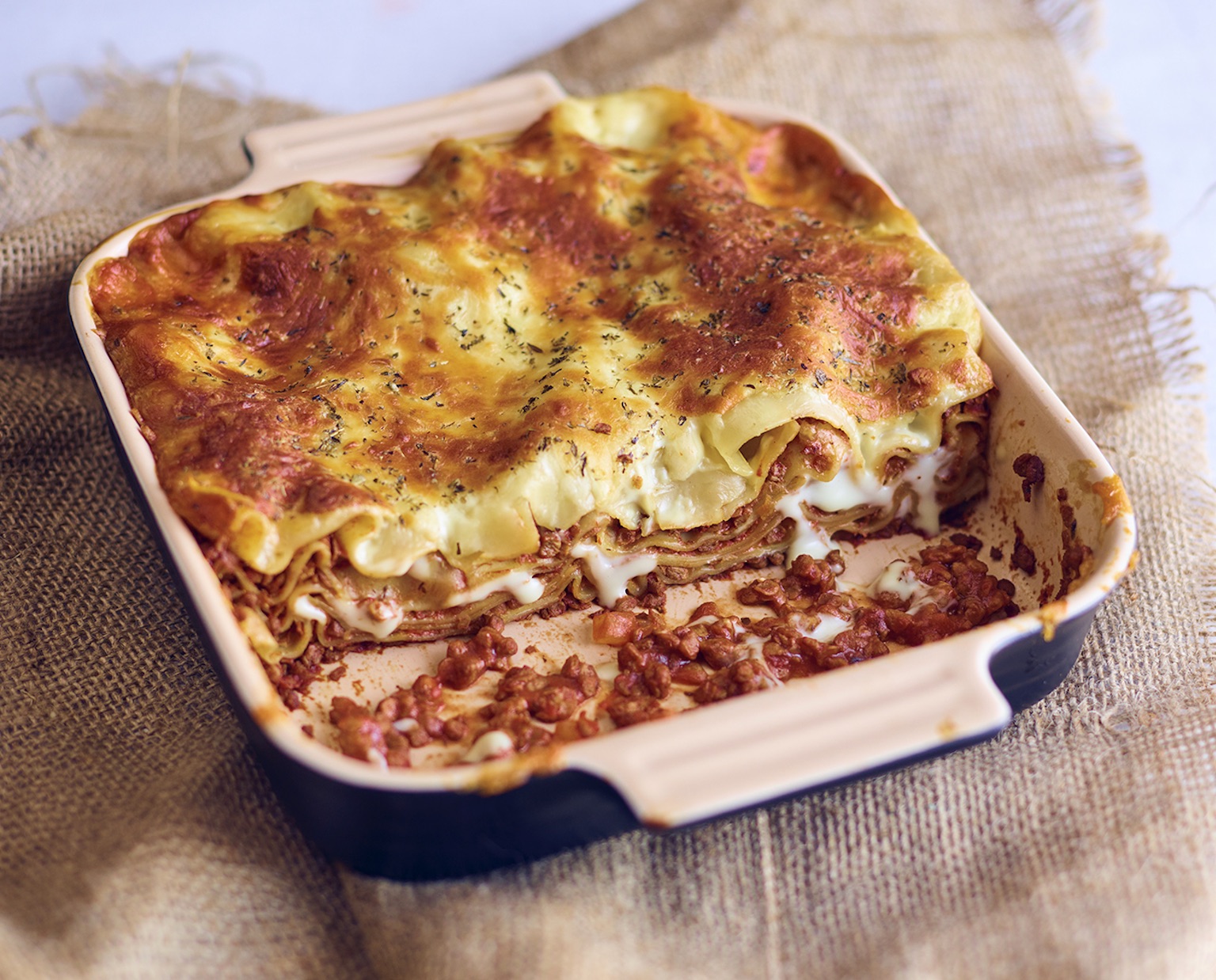
“The soya used in our recently launched KaterVeg! vegan mince, sausages, burgers and bangers is non-GMO, EU soya that is grown in existing, established agricultural areas without the use of the controversial herbicide glyphosate, which makes it as good as it gets from both an environmental and a health point of view,” stated Gordon Lauder, managing director of Northamptonshire, England-based frozen products distributor Central Foods, which specializes in supplying the foodservice sector. “Soya is also high in protein, low in fat, low in sugar, a source of fiber and has salt levels below the PHE 2024 targets – all positive attributes to serve to customers as healthy, sustainable, meat-free menu swaps. KaterVeg! vegan mince (as pictured in the lasagna product above) can encourage more people to try plant-based options.”
Lauder added: “Crops of soya – one of the key ingredients of plant-based products – are due in the autumn and everyone is waiting to see what will happen to prices. However, it seems inevitable that they will rise, given the current geopolitical situation in Europe.”

